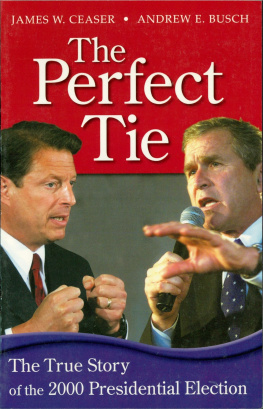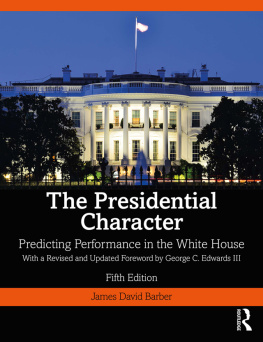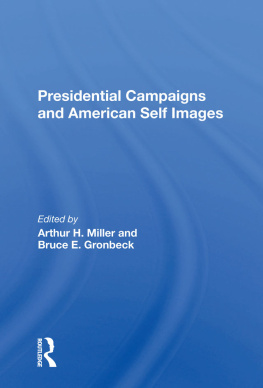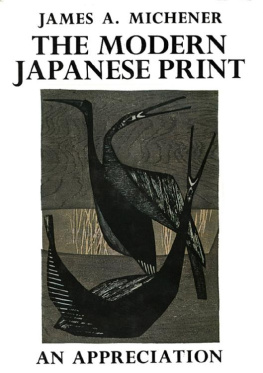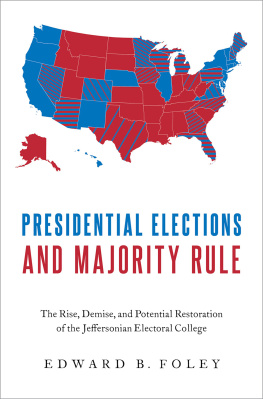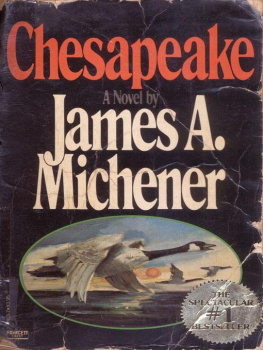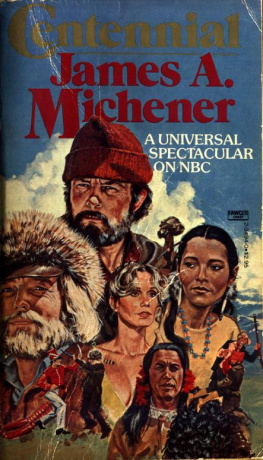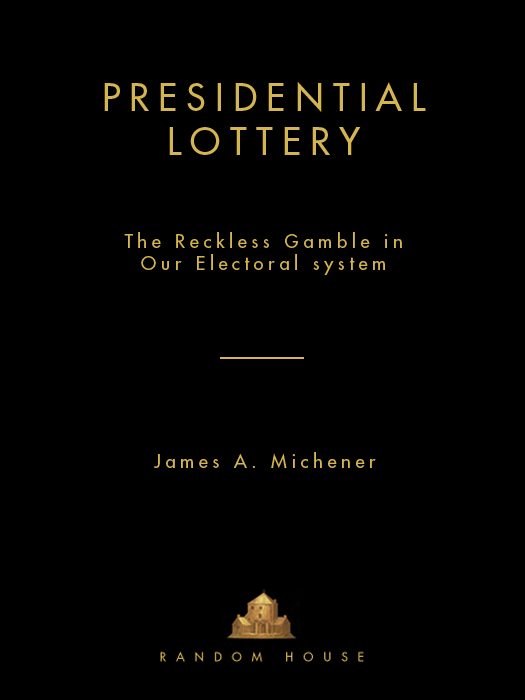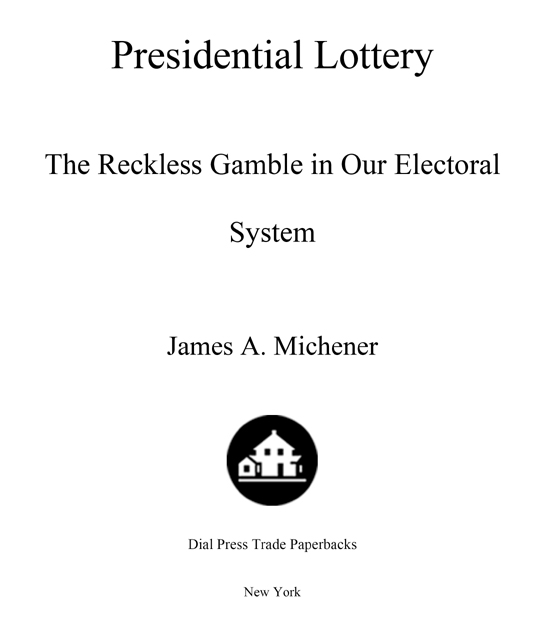Copyright 1969 by Random House, Inc.
Excerpt from Hawaii copyright 1959 and copyright renewed 1987 by James A. Michener
All rights reserved.
Published in the United States by Dial Press Trade Paperbacks, an imprint of Random House, a division of Random House LLC, a Penguin Random House Company, New York.
D IAL P RESS and the H OUSE colophon are registered trademarks of Random House LLC.
Originally published in hardcover in the United States by Random House, an imprint and division of Random House LLC, in 1969.
The quotations (in ) from One Man, 3.312 Votes: A Mathematical Analysis of the Electoral College, by John F. Banzhaf, III, are reprinted with permission from Villanova Law Review, Vol. 13, No. 2, pp. 314315, 317, 329332. Copyright 1968 by Villanova University.
CONTENTS


I

THE AVERTED CHAOS
On election day 1968 the United States once again played a reckless game with its destiny. Acting as if we were immune to catastrophe, we conducted one more Presidential election in accordance with rules that are outmoded and inane. This time we were lucky. Next time we might not be. Next time we could wreck our country.
The dangerous game we play is this. We preserve a system of electing a President which contains so many built-in pitfalls that sooner or later it is bound to destroy us. The system has three major weaknesses. It places the legal responsibility for choosing a President in the hands of an Electoral College, whose members no one knows and who are not bound to vote the way their state votes. If the Electoral College does not produce a majority vote for some candidate, the election is thrown into the House of Representatives, where anything can happen. And it is quite possible that the man who wins the largest popular vote across the nation will not be chosen President, with all the turmoil that this might cause.
In 1823 Thomas Jefferson, who as we shall see had long and painful experience with this incredible system, described it as, The most dangerous blot on our Constitution, and one which some unlucky chance will some day hit. Today the danger is more grave than when Jefferson put his finger on it.
To understand how ridiculous our system is I invite you to follow my adventures last autumn and to see for yourself how close our nation came to turmoil, if not actual disaster.
In late August my phone rang and a voice I knew well and favorably asked, Michener, you want to be a Presidential elector?
It was Milt Berkes, Democratic chairman for my home county, representative in the Pennsylvania lower house, and the hardest-working politician I know. When I ran for Congress, Milt was my campaign manager, and later when I was required to introduce him at public meetings I said, Milt used my money to learn about politics. He used his own to get elected. Our friendship had gone beyond politics, for I liked this former Philadelphia schoolteacher who had moved out to the suburbs to make a good life for his family.
Well, how about it? he asked.
At the moment I was sick in spirit over the debacle at Chicago and wanted no involvement with politics, but as a historian and as one who had worked hard in the practical politics of Pennsylvania, I sensed that the 1968 election was going to be of special significance. I therefore agreed to serve, even though I knew that I was heading for a potential confrontation of grave consequence.
I make this statement carefully and conscientiously: When I accepted the nomination I already knew what might happen in the fall election and I was aware of the part I could be forced to play if Pennsylvania went Democratic and thrust me into the Electoral College. Nevertheless I replied, Sure.
All across America similar phone calls were being made. Hey, Joe! You wanna be an elector? Sure, why not?
It was as simple as that. Men and women were being chosen for one of the potentially most complex responsibilities in our political life simply because they had contributed money to the party, or had been loyal ward leaders, or were known as reliable party hacks.
If you look in , at Article II of the United States Constitution, Section 1, paragraph 2, you will see that it says: Each State shall appoint, in such Manner as the Legislature thereof may direct, a Number of Electors, equal to the whole Number of Senators and Representatives to which the State may be entitled in the Congress.
There are three steps in the process of becoming a duly elected electornomination; pledge to vote the way the state has voted; November electionand the fifty state legislatures have come up with a variety of alternatives for each.
Nomination. If one took into account the various refinements in this process he would end with a group of startling variations, but they would tend to cluster around certain agreed-upon procedures. In many states conventions of the party nominate (e.g., California, Ohio). In other states the state committee chooses (Georgia, New York). In one the electors are nominated by a small executive committee (District of Columbia). Some states do not nominate but choose by state primary (Arizona, Alabama). In one state electors may be chosen in any manner prescribed by the by-laws of the party (Alaska). In another the governor of the state nominates, on recommendation of the political parties (Florida). In one a variety of alternatives is offered (Kentucky). In one each party may nominate two groups, one pledged, the other unpledged, and these compete in a primary (Mississippi). And in my state, Pennsylvania, the Presidential candidates chosen by the national conventions are required to name the specific electors they want to vote for them in the Electoral College if their party carries the state in November.
Pledge to vote the way the state has voted. Here again the practices vary. Some states require pledges; others do not. Some claim that a pledge has been presumed when a man offers his name in the primary of his party; others require a signed document. One official summary of the variations concludes, In Pennsylvania, where electors are nominated by the Presidential nominee, it seems apparent that such electors must have pledged their loyalty to such Presidential nominee or he would not have selected them.
Actual election. In this area there are fewer variations. Most states do not list the names of the electors of each party on the ballot but agree that a vote for the President and Vice-President will be automatically interpreted to mean one vote for each of the allotted electors (e.g., Colorado, Wisconsin). Other states print the names of the electors on their ballots (Idaho, North Dakota). In two states ballots are provided with lists of pledged and unpledged would-be electors (Alabama, Mississippi). And in one the individual parties are given discretionary choice as to whether they want the names of their electors on the ballot (South Carolina).



